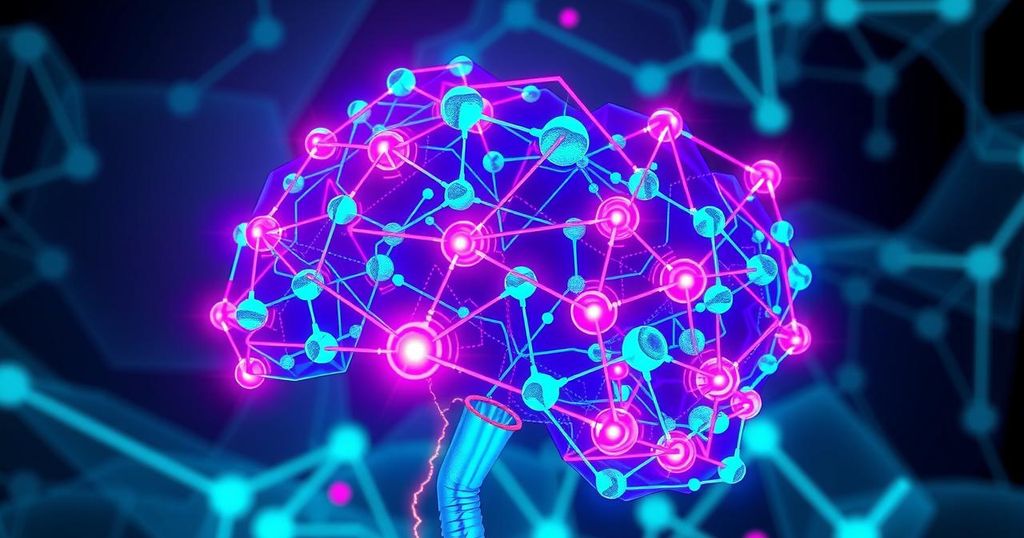Scientists Warn of Risks Posed by Potential Creation of Mirror Bacteria
A group of 38 scientists warns of potential dangers from creating mirror bacteria, synthetic organisms with reversed molecular structures. The experts stress these could pose unprecedented risks to ecosystems and humans, despite the technology being years away. There are significant challenges ahead and strong calls for regulation in this area of synthetic biology.
A group of 38 international scientists has raised a red flag over the potential for creating mirror bacteria, synthetic organisms made from reversed molecular structures. They warn that this radical development could pose significant dangers to humans, animals, and plants through potential exposure to harmful pathogens. Though they acknowledge the technology is still likely over a decade away, the risks from this new frontier of research are described as both unprecedented and overlooked.
In a report published on December 12 by the journal Science, the researchers emphasized the unusual nature of these hypothetical lifeforms. They would contrast starkly with all known life due to their unique chirality. In simpler terms, while our DNA and proteins follow a left and right-handed structure, mirror bacteria would invert this, creating a structural mismatch that might disrupt molecular interactions. The team, comprised of experts from various fields, initially thought the risks were not too severe, but they have since shifted to a more cautious stance.
“It’s a genie you don’t want to let out of the bottle,” said Jonathan Jones, a report coauthor and group leader at The Sainsbury Laboratory in the UK. He continued, stressing that while the immediate risk seems low, the fallout from creating such organisms could be catastrophic. The scientists collectively recommend that without robust evidence proving these mirror organisms would not pose existential threats, any research into their creation should be strictly forbidden.
Their concerns are not trivial. Backing their claims is a 300-page technical report that discusses the feasibility of this endeavor, along with the risks involved. As more labs dive into the creation of synthetic life, there’s a growing realization that understanding life’s origins is tied inherently to developing mirror forms of life as well. But currently, scientists face significant technical challenges that make the advent of mirror bacteria unlikely within the next decade, needing efforts on a grand scale akin to the well-known Human Genome Project.
A huge concern is how mirror bacteria might affect immune responses across ecosystems. The immune systems of both plants and animals typically recognize specific shapes of molecules in pathogenic invaders. If mirror bacteria were to infiltrate; these systems could fail due to the altered shapes, making infection a real possibility. The report sounds alarms about an invasive species wreaking havoc across countless ecosystems, potentially leading to fatal infections in a wide array of species, including humans.
Even if the mirror bacteria don’t thrive at first, there’s fear that evolutionary pressures could select for variants that grow more effectively. “Once established, they may adapt and spread quickly,” Jones warned, highlighting the wild complexity presented by evolution’s relentless machine. Tom Ellis, a synthetic biology professor at Imperial College, offered a more measured response, noting that any actual development of mirror life is still way off in the future.
“The scale of difficulty is akin to humans preparing to land on Mars while fantasizing about interstellar travel,” he remarked, pointing out how much more work lies ahead just to create basic, non-mirror synthetic life. His comments serve as a reminder of the significant hurdles scientists have yet to overcome even before drifting into the realm of mirror organisms.
This research emphasizes a growing need for stringent oversight around synthetic biology, reflecting a balance between scientific discovery and ethical responsibility. The stakes are high, and as these scientists have highlighted, the potential consequences can’t be easily brushed aside.
In summary, the alarm sounded by scientists regarding mirror bacteria is one of caution mixed with curiosity. They underscore the uncharted territory that exists in synthetic biology, where the potential for groundbreaking discoveries also carries a risk of unforeseen dangers. Without careful oversight and thorough understanding, researchers warn of possible severe consequences that could ripple through ecosystems and impact human health. The question now may be how to navigate the tight rope of innovation while keeping safety in mind.
Original Source: www.cnn.com




Post Comment